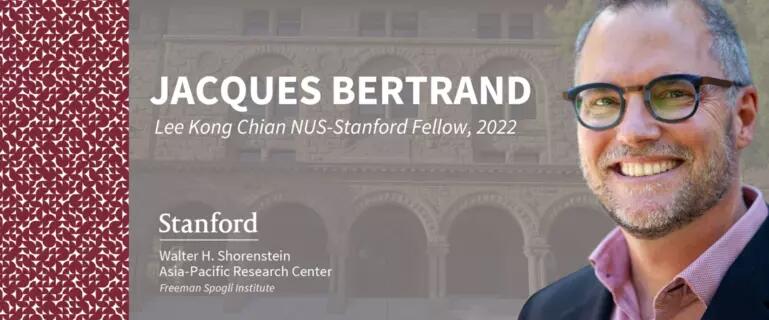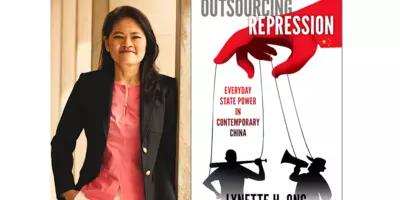
From War to Peace: Examining the Political Roots and Transitional Challenges of Civil War in Southeast Asia
In this interview, Lee Kong Chian NUS-Stanford Fellow on Southeast Asia, Jacques Bertrand discusses his research into the legacies of war in Southeast Asia and his current book project on war-to-peace transitions, which is largely focused on the region.
In 2021, a military coup in Myanmar brought an end to the prospects for democratic reform that the country had sought to establish following the 2011 general election. Any constructive dialogue between ruling junta and ethnic minorities dissipated, and the country fell back into civil war. Meanwhile, in ostensibly democratic Indonesia and the Philippines, rebellions by the Moros and Acehnese were resolved. These developments bring several questions to the fore: Does democracy necessarily foster peaceful outcomes? What is the interactive process between the state and its opponents? And how might democratic institutions be used to manipulate and undermine insurgent ethnic minority groups?
These are some of the questions Dr. Jacques Bertrand has sought to answer in his research. Bertrand, a professor at the University of Toronto's Department of Political Science, is the Lee Kong Chian NUS-Stanford Fellow on Contemporary Southeast Asia at APARC for the 2022 fall quarter. The fellowship, which is hosted jointly by APARC’s Southeast Asia Program (SeAP) and the Faculty of Arts and Social Sciences at the National University of Singapore, raises the visibility, extent, and quality of scholarship on contemporary Southeast Asia. The fellowship is now accepting applications for the 2023-24 cycle.
For Bernard, the fellowship afforded the opportunity to advance his research into civil wars and war-to-peace transitions. He recently presented his work in a SeAP seminar entitled “Can Democracy Handle Ethnic War? Evidence from Southeast Asia.”
In his talk, Bertrand discusses how democracy helps to create credibility, set terrain for negotiated agreements, and establish a framework for settling grievances. There is, however, an unresolved debate about the overall merits of democracy in addressing secessionist or nationalist conflicts. According to Bertrand, the question of whether democracy can handle ethnic war needs more attention, as do less visible dimensions of peace agreements, negotiating forums, and post-legislative regulations.
We caught up with Jacques Bertrand to discuss his research and experience at Stanford this quarter. The conversation has been slightly edited for length and clarity.

